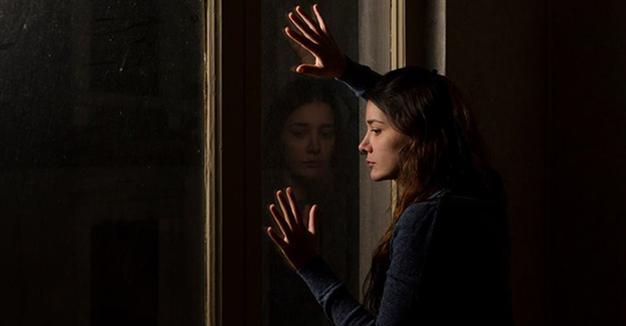Turkish films turn to crowdsourcing for funding
Emrah Güler
 The only systematic funding opportunity for filmmakers in Turkey has been the regular funding given by the Culture Ministry since 2005. Kültigin Kağan Akbulut’s research titled “The Culture Ministry’s Cinema Support,” available for download online, cites the problems of funding in Turkey’s cinema industry, with the major one being that the funding given by the state is the only major resource for filmmakers.
The only systematic funding opportunity for filmmakers in Turkey has been the regular funding given by the Culture Ministry since 2005. Kültigin Kağan Akbulut’s research titled “The Culture Ministry’s Cinema Support,” available for download online, cites the problems of funding in Turkey’s cinema industry, with the major one being that the funding given by the state is the only major resource for filmmakers.In the research, producer Serkan Çakarer said that when the law regulating the Culture Ministry’s cinema support was passed in 2004, an average of 15 movies was filmed annually. That number shot up to around 80 last year. The lower amounts allocated to productions, coupled with funds provided only to producers and directors to film their movies, has made filming, releasing and keeping movies in theaters all the more difficult.
The Turkey Cinema Law, encompassing a broad range of problems from funding to regulations and movie theaters, has become a joke, waiting to bring reforms to Turkish cinema, when (or if) it passes. Producers and film marketers in Turkey now need to be tougher and more capable than ever.
Filmmakers have been trying to make ends meet on their own. Alternative resourcing is now becoming the go-to method for many filmmakers. Feature films, documentaries and short films were financed (and sometimes not) through online crowdsourcing channels Kickstarter and Indiegogo initially, and now through their Turkish equivalent, Fongogo.
Turkish films on Fongogo
Online crowdsourcing, or crowdfunding, websites offer anyone with an idea, from a film to a start-up, an opportunity to collect funding through a rewards-based system. The donors, or investors, fund a project in exchange of gifts, from autographs and gift sets to cameos in films and their names in a film’s credits.
Fongogo has been the more popular of the crowdsourcing websites in Turkey in recent years for the convenience it brings both in language and the transfer of funds. When you look at the website, you will find six films, three feature and three short films, waiting to reach their desired level of funding before their deadlines.
Producer Hasan Tualp and director/writer Erdal Kaynak are looking to raise 60,000 Turkish Liras within 60 days for their feature thriller “Dehşet Seni Bulur” (Horror will Find You). They have included a teaser to give the potential backers an idea of what they will be contributing to. The gifts range from movie tickets for those who have given 25 liras to becoming a producing partner, which includes shares of the gross, for 10,000 liras.
Director, writer and producer Berrak Çolak is hoping to raise a mere 5,000 liras for her short film “Nedret Bugün Kaybolur” (Nedret Vanishes Today). There are only 18 days left to raise the amount and start filming.
If the amount is not raised, the website (similar to other crowdsourcing websites) refunds the backers’ money. If more than the amount required is raised, the project owners spend the money on their project, provided the expenditures are transparent.
‘Inflame’ and ‘Dust Cloth’: Success stories
Some films fall short of the targeted amount, thus having to find new ways to fund their films. Others become examples, reaching the desired amount through successful campaigning. The producer and presenter of a much-loved TV program on cinema for a decade, Ceylan Özçelik, recently funded her debut feature “Kaygı” (Inflame), going on to complete filming immediately after the end of her Fongogo campaign.
Little more than the desired amount of 50,000 liras was collected within 40 days from 238 backers, with gifts ranging from simple thank you messages on the film’s social media channels to digital albums of film stills, cameos in the film and even becoming producing partners. With the tagline “Based on a true nightmare,” the film tells the story of a news-channel employee who has been having a recurring nightmare that makes her wonder whether it is possible that her parents did not die in a car crash.
Director and writer Ahu Öztürk crowdsourced a portion of the funds for her recent release “Toz Bezi” (Dust Cloth) through an Indiegogo campaign. The powerful story of the cleaning women of the slums and the privileged urban women of the houses they clean won the Golden Tulip for Best Film in the National Competition in last April’s Istanbul International Film Festival.
“We are making a film, and we want to make it a collaborative effort!” Özyurt had said on the Indiegogo campaign page, “The challenges of making a film in Turkey need no explaining… It isn’t always easy to tell the stories we want to tell. Not only will your support help us out in our hour of need, it will give us the satisfaction of having worked together and engaged with a wide audience to make the film.” Hail to new ways of funding.
















